Filter by
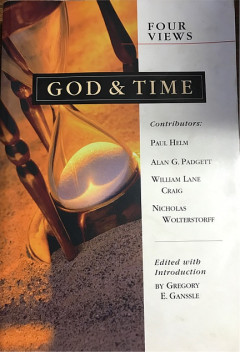
God and Time: Four Views
The eternal God has created the universe. And that universe is time-bound. How can we best understand God’s relationship with our time-bound universe? For example, does God experience each moment of time in succession or are all times present to God? How we think of God and time has implications for our understanding of the nature of time, the creation of the universe, God’s knowledge of…
- Edition
- 1
- ISBN/ISSN
- 9780830815517
- Collation
- Softcover; 256 hlm.; 15.19 x 22.78 cm
- Series Title
- -
- Call Number
- 231.7
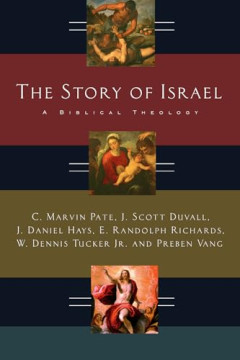
The Story of Israel: A Biblical Theology
Among the several prominent themes in the Bible, the story of Israel is one that has attracted recent attention and study. The biblical story of Israel--in its election, sin, exile and restoration--is a finely articulated drama of the glory and the plight of the universal story of humanity and creation. And the story of Jesus, born from the womb of Israel as its Messiah and true seed of Abraham…
- Edition
- -
- ISBN/ISSN
- 9781844740550
- Collation
- Softcover, 320 hlm, 15 x 23 cm
- Series Title
- -
- Call Number
- 230.041
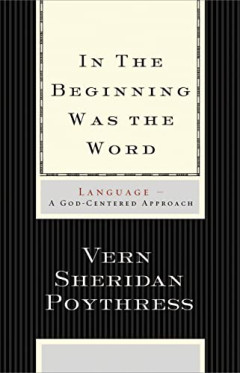
In the Beginning Was the Word: Language-A God-Centered Approach
Language is not only the centerpiece of our everyday lives, but it gives significance to all that we do. It also reflects and reveals our all-sustaining Creator, whose providential governance extends to the intricacies of language. Writes Vern Poythress, "God controls and specifies the meaning of each word-not only in English but in Mandarin Chinese, Hindi, Italian, and every other language. Wh…
- Edition
- -
- ISBN/ISSN
- 9781433501791
- Collation
- Softcover; 415 hlm.; 15.2 x 22.8 cm
- Series Title
- -
- Call Number
- 230.014
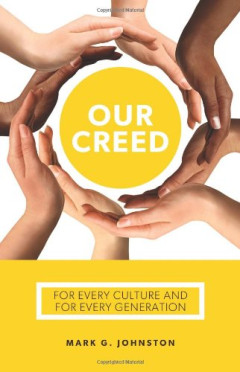
Our Creed: For Every Culture and Every Generation
The Apostles' Creed has united the church throughout her history. The engaging and pastoral style of?Our Creed?presents the creed in a fresh and appealing manner that speaks to our postmodern culture. By unfolding the creed's great scriptural truths and using helpful applications, compelling illustrations, and penetrating study questions, this book is the perfect tool for membership classes, sm…
- Edition
- -
- ISBN/ISSN
- 9781596384484
- Collation
- Softcover; 124 hlm.; 14 x 21.5 cm
- Series Title
- -
- Call Number
- 238.11
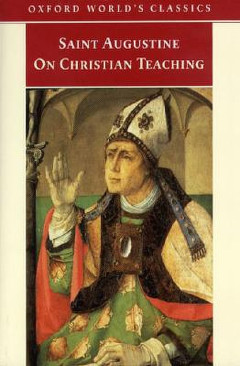
Saint Augustine on Christian Teaching
On Christian Doctrine is a theological text written by St. Augustine of Hippo. It consists of four books that describe how to interpret and teach the Scriptures. The first three of these books were published in 397 and the fourth added in 426. By writing this text, St. Augustine set three tasks for Christian teachers and preachers: to discover the truth in the contents of the Scriptures, to tea…
- Edition
- 2
- ISBN/ISSN
- 978-0-1928-39282
- Collation
- Soft Cover, 208 hlm, 13x19.5 cm
- Series Title
- Oxford World's Classics
- Call Number
- 230.14
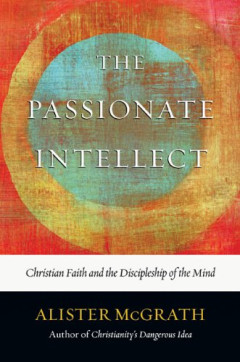
The Passionate Intellect: Christian Faith and the Discipleship of the Mind
Alister McGrath argues that Christian thought has a vital role to play in the survival of the Christian vision of reality. By setting the gospel in the great tradition of Christian theological reflection, we have the makings of a robust engagement in the public sphere of ideas.
- Edition
- -
- ISBN/ISSN
- 9780830836758
- Collation
- Softcover; 210 hlm.; 13.97 x 20.83 cm
- Series Title
- -
- Call Number
- 230
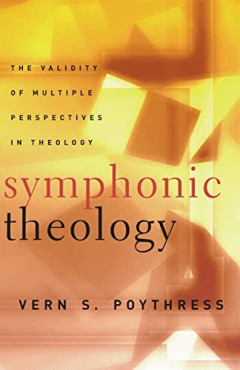
Symphonic Theology: The Validity of Multiple Perspectives in Theology
The truth of God is rich and multifaceted. Though a coherent body of revelation, the Bible comes to us through a variety of inspired authors, metaphors, and themes highlighting the many facets of God's truth. Likewise, our theological formulations capture manifold emphases--distinct perspectives on the whole--which collectively enable us to gain a fuller understanding of the truth. Poythress ex…
- Edition
- -
- ISBN/ISSN
- 9780875525174
- Collation
- Softcover; 128 hlm.; 14 x 21 cm
- Series Title
- -
- Call Number
- 230.01
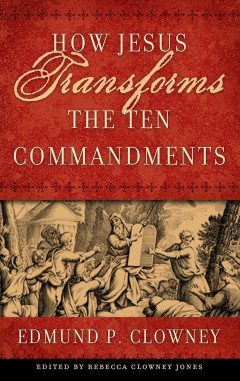
How Jesus Transforms The Ten Commandments
For many Christians, conditioned to emphasize our freedom from the law. Jesus' words seem strange, even incompatible with the gospel.of grace. If Jesus did not abolish the law, then how should we look at the Ten Commandments today? Clowney explains how Jesus intensifies the law and expands its scope to every situation in life. But as the author did so often during his ministry, he goes further,…
- Edition
- -
- ISBN/ISSN
- 9781596380363
- Collation
- Softcover; 162 hlm.; 13.97 x 21.54 cm
- Series Title
- -
- Call Number
- 241.52
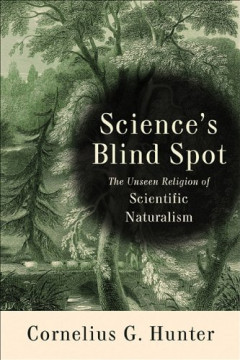
Science's Blind Spot: The Unseen Religion of Scientific Naturalism
Had evolutionists been in charge, they wouldn't have made the mosquito, planetary orbits would align perfectly, and the human eye would be better designed. But they tend to gloss over their own failed predictions and faulty premises. Naturalists see Darwin's theories as "logical" and that's enough. To think otherwise brands you a heretic to all things wise and rational. Science's Blind Spot tak…
- Edition
- -
- ISBN/ISSN
- 9781587431708
- Collation
- Softcover; 170 hlm.; 16.81 x 22.76 cm
- Series Title
- -
- Call Number
- 201.65
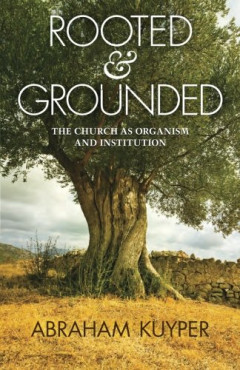
Rooted and Grounded: The Church as Organism and Institution
Abraham Kuyper?s Rooted & Grounded is the Word of the Lord for the Christian church today. Christians know the Gospel must permeate every area of life organically, that every vocation is integral and not accidental to the missio Dei, as my friend and colleague Steven Garber is fond of saying. This is what Kuyper means when he talks about the church being rooted in the organism of the Gospel. Bu…
- Edition
- -
- ISBN/ISSN
- 9781938948534
- Collation
- Softcover; 76 hlm.; 13.5 x 21.6 cm
- Series Title
- -
- Call Number
- 206
 Computer Science, Information & General Works
Computer Science, Information & General Works  Philosophy & Psychology
Philosophy & Psychology  Religion
Religion  Social Sciences
Social Sciences  Language
Language  Pure Science
Pure Science  Applied Sciences
Applied Sciences  Art & Recreation
Art & Recreation  Literature
Literature  History & Geography
History & Geography